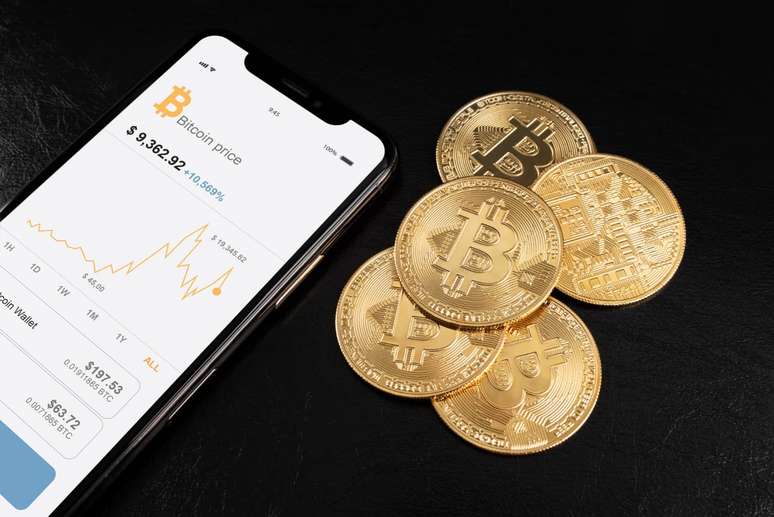Summary
Bitcoin is an asset that consolidates itself as the first native currency on the Internet and offers sovereignty and freedom compared to government currencies.
It is not uncommon to hear, in bar conversations or on social media, the phrase: “Bitcoin? There’s no way! It’s very volatile.” The predictable and recurring criticisms generally come from those who still view digital currency with suspicion. But is Bitcoin’s volatility the problem they portray?
For the first time in history we are faced with an asset that is consolidating as the first native internet currency, with characteristics superior to those of gold, which make it a potential new financial support. In addition to being scarce, with issuance limited to 21 million units, Bitcoin is divisible, portable and impossible to counterfeit – qualities that gold cannot replicate in the digital environment.
Unlike precious metals, it is immune to manipulation by governments or central banks, and because it is digital, it can be transferred instantly anywhere in the world, without intermediaries. And, of course, its volatility tends to exacerbate as the monetization process unfolds – among other things according to parabolic curves. What we are witnessing is a real-time revolution, streamed live and accessible in the palm of your hand.
On the other hand, government-controlled currencies have historically faced challenges that limited their value over time. Inflation, caused by central banks’ unlimited ability to issue money, is the main villain. Since the 20th century, with the abolition of the gold standard, the value of national currencies has been eroded by the constant expansion of the monetary base, leading to the devaluation of savings and the loss of people’s purchasing power.
While Bitcoin has a fixed and predictable supply, traditional currencies are subject to manipulation based on the political and economic interests of the moment. Furthermore, the international financial system faces the complexity of cross-border payments, where exchange between different currencies requires the use of an intermediary global currency, such as the US dollar, which is subject to power fluctuations and the economic hegemony of United States. This creates a cycle of dependence, where smaller countries and their economies are at the mercy of decisions made by a foreign power.
Central banks, in turn, add a layer of uncertainty. Monetary policies can change dramatically depending on who is in charge or the political landscape. Governments often resort to printing money to finance deficits, which generates more inflation and economic instability. In many countries, this practice has led to crises of confidence in the currency, as we have seen in the extreme cases of Venezuela and Zimbabwe. State control over money creates a scenario in which citizens are subjected to cycles of economic uncertainty, caused by measures taken to bail out governments, banks and companies, at the expense of the value of their personal savings.
Meanwhile, Bitcoin remains on the fringes of this centralized system, offering an alternative whose volatility is often the price of owning an asset immune to outside intervention. However, criticism of Bitcoin’s volatility appears to ignore deeply rooted problems in government currencies, whose devaluation, inflation and instability are seen as normal.
The control over Bitcoin is completely yours: it’s your money, your Bitcoin, without banks or intermediaries. And perhaps this is where the real discomfort lies. For a population accustomed to delegating responsibilities, taking direct control over their assets creates insecurity. “What if I lose everything?” asks the citizen, ready to hand over the keys to his assets to a state body or a “trusted” third party.
What is truly intriguing, however, is the willful blindness, perhaps fueled by years of statism, to the other side of the equation. While Bitcoin offers sovereignty and freedom, governments and traditional institutions present submission and misery as the only alternative.
It is heartbreaking to observe the global disservice provided by governments, and Brazil is no exception. Across the world we see a political class concerned only with itself, acting in a way inconsistent with the discourses that brought it to power. Central banks have become veritable money-printing machines, flooding economies with banknotes that are worth less and less.
This wave of paper money is eroding saving capacity and inflating economies at an alarming rate. From the sidelines, the world’s population watches what appears to be an experiment in power: questionable inflationary and policy measures that only increase economic and social chaos. Companies, countries and citizens sink into unpayable debt, while leaders remain adamant.
As a famous character from the series once said: “Chaos is a ladder.” And indeed many have done so, taking advantage of the volatility and uncertainty that they themselves help to create.
But what about Bitcoin? Oh yes, he remains the villain due to his volatility…
Eduardo Meyer is COO of FMI, a company that stands out in the Bitcoin mining sector.
Source: Terra
Rose James is a Gossipify movie and series reviewer known for her in-depth analysis and unique perspective on the latest releases. With a background in film studies, she provides engaging and informative reviews, and keeps readers up to date with industry trends and emerging talents.







